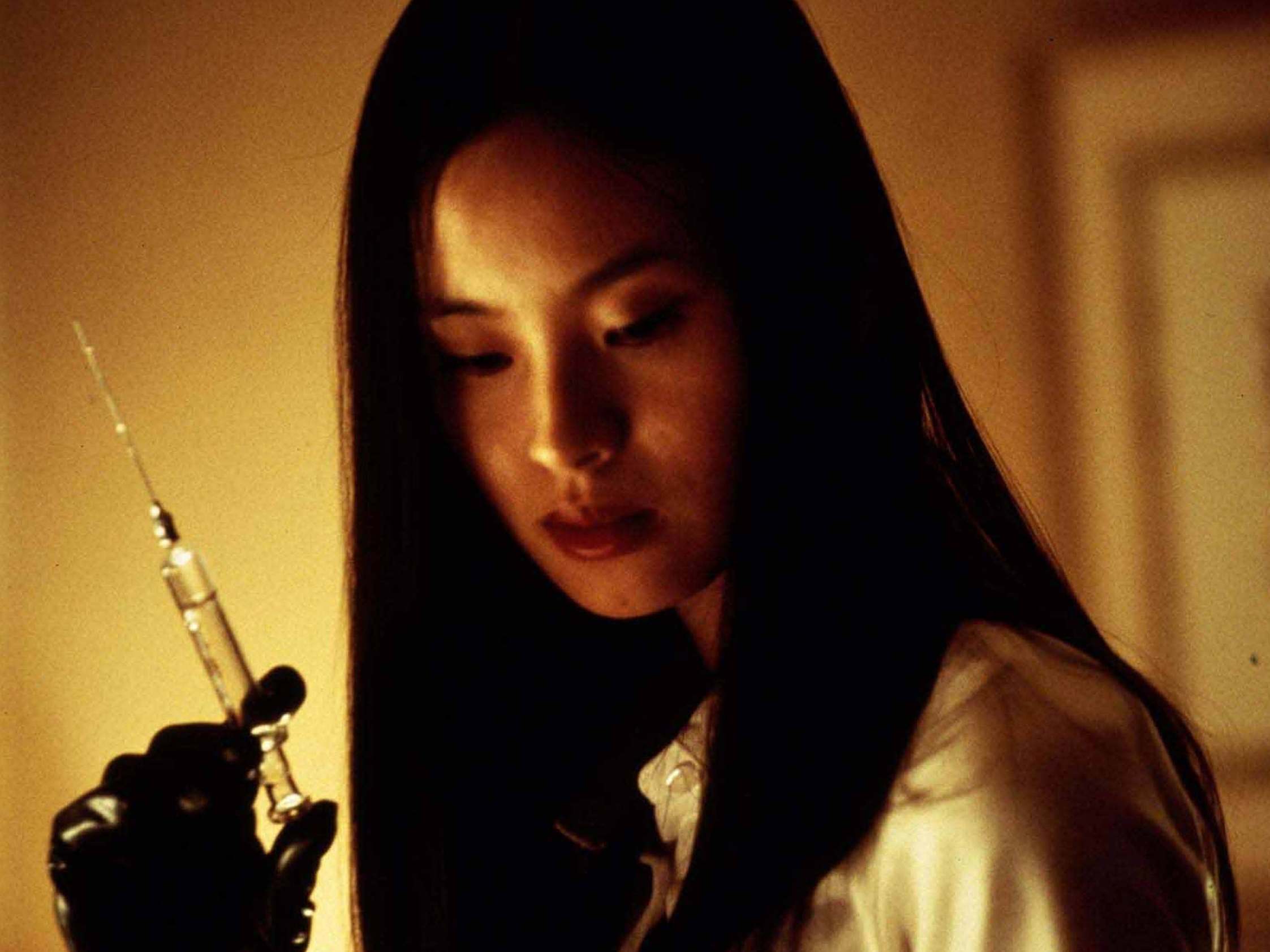The Indy Film Club: How Audition helped Takashi Miike become the godfather of ultraviolence
The film went on to influence filmmakers such as Eli Roth of ‘Hostel’ (2005), helping to kick off the ‘torture porn’ trend of the early 2000s, writes Clarisse Loughrey


No film pulls the rug from under its audience quite like Takashi Miike’s Audition. It opens on a boy, bouncing down the corridors of a hospital. He clutches a homemade diorama emblazoned with the words “Dear Mom, get well soon”. Seven years later, we see the now-adolescent boy and his widowed father, as they live together in blissful bachelorhood: they fish, fuss over the dog and lament their housekeeper’s cooking skills. Flash-forward to the end – dear father is lying on a mat, his feet sawn off with piano wire and acupuncture needles sticking out of his eyes. The route to such horrors defies every expectation.
Audition is perhaps the greatest demonstration of Miike’s crazed brilliance. He’s famously prolific, with over a hundred features, TV productions, music videos and short films under his belt – in every imaginable genre, from zombie musicals (The Happiness of the Katakuris) to superhero films (Zebraman). But the films primarily exported to the west, and responsible for his reputation here, are those of a more exploitative, nihilistic flavour. Ichi the Killer (2001) features a man suspended from meat hooks and drenched in hot oil until his flesh starts to moult. No wonder Quentin Tarantino declared him “the godfather of ultraviolent, get-under-your-skin movies”.
Since much of the violence is implied and not shown (often through a sickening use of sound), Audition is on the tamer end for Miike. But it’s formidable in how deftly it manipulates its viewers. Aoyama (Ryo Ishibashi) is encouraged first by his son to find a new wife, then by his friend Yoshikawa (Jun Kunimura) to use his powers in the film industry to field potential candidates through a fake casting call. Romcoms are packed with these kinds of elaborate ruses – and Miike wears their inoffensive tone like a disguise. His framing of the story is reserved and traditional, while Koji Endo’s soundtrack edges into saccharine. It’s almost dull in places.
Aoyama falls for the 28th woman to audition, Asami (Eihi Shiina), a former ballet dancer who’s a picture of feminine subservience. She keeps her head bowed. Her dress is virginal white. The would-be lovers are shown waiting by the phone, anticipating the moment their worlds will collide. But something’s not right here. Why does Asami sit hunched over like she’s an automaton waiting to be powered up? And what’s that bulk inside the laundry sack next to her? When it rattles into life with a savage roar, the shock feels like a cattle prod to the ribs.
Serenity gives way to shadows and dark, lurid colours; the camera swings towards impossible angles. Here begins Audition’s descent into barbarity: dismembered appendages, a starved man lapping up vomit from a dog bowl, and Asami – dressed in fetishistic leather – screeching “kiri, kiri, kiri” (“deeper, deeper, deeper”) as the needles plunge in.
Though it dispensed with the supernatural, the film was originally greenlit as a successor to Ring (1998) and an early entry in the J-horror boom. Based on the Ryu Murakami novel, it failed to make an impact in Japan, enjoying only a brief theatrical window, but exploded with fury onto the European and American festival circuits. In Switzerland, paramedics were called in after audience members started to faint. In Rotterdam, a woman marched out during the final scene, pausing only to hiss at Miike: “You’re evil!” Everywhere, walkouts were treated as standard. Audition went on to influence filmmakers such as Hostel (2005)’s Eli Roth, helping to kick off the “torture porn” trend of the early 2000s.
But all the Saws and Hostels of the world forget how entrenched in gender politics Miike’s film is. It’s quaint, at first, but tinged with a kind of casual cruelty. Women are consistently demeaned and dehumanised: Yoshikawa complains that today’s women are all “no class and stuck-up”, while Aoyama compares finding a wife to buying a car. Those auditioning are asked probing questions about their sex lives. It’s disturbing in itself that Aoyama is so fixated on finding a perfect double of his angelic, accomplished late wife. It suggests that he sees women as interchangeable – later on, this becomes true in a literal (and disturbing) sense.
It’s tempting to read Audition as a kind of feminist revenge flick, with Asami as the avenging angel. She’s a victim of child abuse who’s reflected her pain back on the world because, as she believes, “pain doesn’t lie”. It’s also been, for much of her life, her only source of human connection. But Asami’s bloodlust not only lacks an agenda (she has no issue killing Aoyama’s dog), it’s ultimately defeated. Asami and Aoyama are left collapsed on the floor, moments away from death – the first and only time they’re equals in this power struggle. Miike even deliberately skews reality, subtly implying Aoyama may have imagined some part of his torture. Could it just be his guilty conscience talking? Whatever the interpretation, the truth is clear: inhumanity begets inhumanity. And the patriarchy is the stuff of waking nightmares.
Join our commenting forum
Join thought-provoking conversations, follow other Independent readers and see their replies
Comments